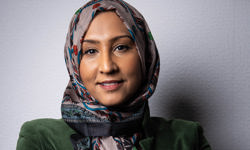The three new members are:
Christine Elliott. Chief Executive of the Institute for Turnaround and previous Director of Bletchley Park, Ms Elliott has experience of being involved in high profile media stories.
David Jessel. A former TV investigative journalist, Mr Jessel is also a member of IPSO’s complaints committee and has experience of using the Code to adjudicate on complaints.
Dr Kate Stone. The founder of Novalia, a Cambridge technology company that adds digital interactive touch to everyday things. Dr Stone has previous experience of using the Editors’ Code to bring a complaint about newspaper coverage.
Paul Dacre, Chairman of the Editors' Code Committee, said: "We welcome the appointment of these distinguished lay members, which fulfils the commitment we made in the aftermath of the Leveson Inquiry to ensure the public were represented on the Editors’ Code Committee, the body responsible for writing the Editors’ Code of Practice. They will play a vital role in guaranteeing the Editors’ Code remains the standard against which all British journalism is judged."
Sir Alan Moses, Chairman of IPSO said: “I am delighted that we were able to attract such a high calibre field. The Editors’ Code is the standard that IPSO uses to regulate the press. The addition of lay members is a welcome development and I am sure the Committee will benefit from the perspectives the new appointees bring.”
The lay members of the Editors’ Code of Practice Committee are defined as being ‘people who are independent of the press’. They are appointed for three years.
The other members of the Editors’ Code of Practice Committee are:
Paul Dacre, Daily Mail
Sir Alan Moses, Chairman of IPSO
Damian Bates, Aberdeen Press and Journal
Neil Benson, Trinity Mirror Regional Newspapers
Geordie Greig, Mail on Sunday
Jonathan Grun, Press Association
Ian Murray, Southern Evening Echo
Mike Sassi, Nottingham Evening Post
Matt Tee, Chief Executive of IPSO
Hannah Walker, South London Press
Harriet Wilson, Conde-Nast Publications
John Witherow, The Times.












